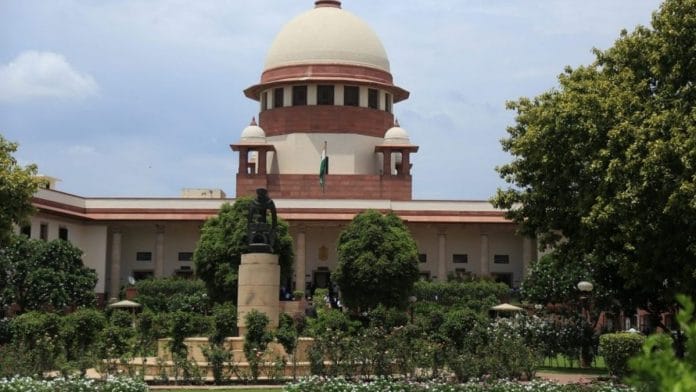New Delhi: The Supreme Court collegium headed by Chief Justice of India Ranjan Gogoi has no hesitation in disclosing the reasons behind transfers of high court judges, including chief justices, the secretary general of the top court said in a statement Thursday evening.
The unusual statement, issued by Supreme Court secretary general Sanjeev S. Kalgaonkar, follows the controversial transfer of Madras High Court Chief Justice V.K. Tahilramani to the much-smaller Meghalaya High Court.
Justice Tahilramani had asked the collegium to review her transfer but tendered her resignation when the top judicial appointments body reiterated its decision. The resignation remains pending with the President.
The Supreme Court, which has courted several controversies in the recent past, is generally not known to issue such statements.
According to the secretary general, “each of the recommendations for transfer was made on cogent reasons after complying with the required procedure in the interest of better administration of justice”.
Although the court has noted in its statement that it is not in favour of disclosing the reasons for transfers as it would not be in “interest of the institution”, it states that, “if found necessary, the collegium has no hesitation in disclosing the same”.
The statement goes on to add that each recommendation of the collegium, which comprises the five most senior judges of the Supreme Court, is made after “full and complete deliberations” and evolving a consensus.
Also read: Collegium musical chairs: How an HC judge set to supersede one, got passed over instead
Controversial transfers
As reported by ThePrint, Justice Tahilramani was allegedly transferred because she resisted pressure from a senior judge to elevate two lawyers of the Madras High Court.
Tahilramani had opposed their elevation as the two didn’t meet the age criterion specified in the Memorandum of Procedure, which lays down the procedure for judicial appointments.
Hers is, however, not the only judicial transfer that has evoked scrutiny.
On 10 May, the Supreme Court collegium recommended the appointment of Justice Vikram Nath, then the most senior judge of the Allahabad High Court, as Chief Justice of the Andhra Pradesh High Court.
However, after the Centre requested a reconsideration, the collegium appointed Justice Nath as the Chief Justice of the Gujarat High Court.
While the Memorandum of Procedure allows the central government to express its reservations about collegium recommendations, it is rare for the collegium to change its decision on this ground. The collegium usually reiterates its recommendation, which makes the appointment final.
Before the decision was finalised, the collegium had reportedly asked the Centre to clarify why it didn’t want Justice Nath as chief justice of the Andhra Pradesh High Court.
Another collegium recommendation from May, to appoint Justice A.A. Kureshi of the Bombay High Court as Chief Justice of the Madhya Pradesh High Court is also pending as the Centre has requested the collegium to reconsider their opinion.
Also read: Justice Tahilramani’s resignation shows why Supreme Court collegium is a failed system







Transfering from Madras HC to Meghalaya HC is like a demotion. Why would any self-respecting judge accept it? Saying that all HCs are same under the constitution is a false bogey.
That should be Standard Operating Procedure. The Collegium – which invariably acts in the public interest – has complete faith in its own integrity. However, in a vibrant democracy, where there are no sacred cows, it is in everyone’s interest if the fullest possible disclosure is made. The transfer of a judge is not the nuclear codes; there is no plausible reason why this information should remain classified.